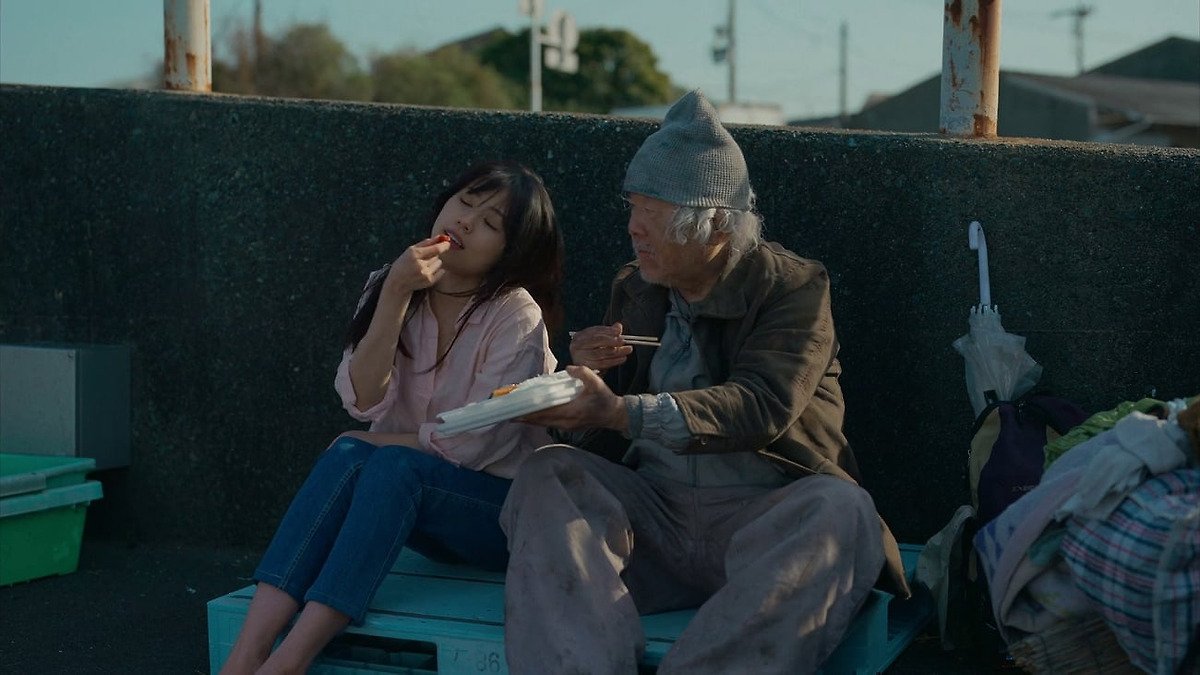Japanese cinema has always fascinated me for its humanist storytelling. Besides its avant-garde experimentations from new-wave cinema, it has managed to present profound contemplations on life that are particular to the region and yet filled with universal themes. Rikiya Imaizumi’s ‘Call Me Chihiro’ is another addition to the list of comforting Japanese movies that excel in simplicity.
While following the journey of a sex worker trying to find a new purpose for her life, the film becomes captivating through its irresistible charm and its compassionate approach. It starts out on an adorable note. We meet Chihiro (played by Kasumi Arimura) in a park, playing with a cat. There is almost a childlike innocence in her behavior and how she conducts herself in this setting, without a worry about what anyone would think of her. From a distance, school-going Kuniko (played by Hana Toyoshima) stalks her and clicks her photos.
Despite its apparent creepiness, you end up feeling sorry for this girl who seems curious about Chihiro’s natural sense of freedom. Back in her class, she scrolls through these photos and smiles a little. Chihiro, on the other hand, deals with her horny male customers, who arrive at her shop due to her reputation as a sex worker. They also consider her openness inviting and find her to be more considerate toward them. It turns out, she is just as open to everyone’s emotional needs.

Even when she meets a petty beggar, she greets him with open arms. There is no judgment, no thought of class or image. There is just pure emotion that she feels for almost everyone around her, which can seem borderline naïve. Even when she accidentally stumbles upon Kuniko and young Makoto (played by Tetta Shimada), she forges a strong emotional bond with them. They both seek what they cannot find in their homes.
Kuniko belongs to a conservative family unit where her father dictates which way the wind will blow for them. Her mother also believes in his patriarchal authority and supports it. While there is no physical abuse, you see how Kuniko’s meekness is borne out of the pressure it has put on her mental health. Besides her father’s staunch orthodox approach, what bothers her is her mother’s conformity to his beliefs. There’s bottled-up anger inside Kuniko that rarely finds an outlet to express it with.
Makoto lives with his single mother. While she deals with her life as an independent woman with confidence, he seeks her company which he rarely gets. In Kuniko and Chihiro, he gets a semblance of a family that he can share some sort of joy with. Besides their stories, we encounter Basil (played by Van), a sex worker that Chihiro knew from her past life. Just like her, Basil also looks for a way to reinvent her life while dealing with the loss of her hard-earned savings.
Chihiro enjoys a friendly camaraderie with this woman. On the other hand, she also treats her past employer Utsumi (played by Shoplifters-fame Lily Franky), with the utmost kindness. She does not showcase even a bit of resentment. There is rather a genuine understanding of how the choices one makes don’t determine the worth of a person. Their ways of survival are not looked at with frown or disdain but with an understanding of the hardships of life.
While Chihiro comes across as a too-good-to-be-true person, the film opens us to darker parts of her past through further revelations. Like innumerable Japanese narratives, Call Me Chihiro is also interested in exploring the relationship between the past and the present to open threads of introspection. The details from Chihiro’s past influence the ways in which she approaches the world and those around her.
Besides, we see how empathy works like a chain, where one’s kindness to another person makes them more considerate toward others. The film brims with the same warmheartedness for its characters. The moments take enough time to organically brew its moments in a leisurely pace. There is a natural sense of calm and comfort the film derives because of it.
Despite all its apparent sweetness, there’s an underlying sadness that shows how she translates the hurt she felt into something more nurturing. I mean, how can you not feel for a person who would go to the lengths of helping an ant walk back on its feet? As a result, despite the film’s finite exploration of its characters’ psyche, the film works wonders due to its gentleness.




![Descendant [2022]: ‘Sundance’ Review – Reclamation of identity by rediscovery of history as a tangible construct](https://79468c92.delivery.rocketcdn.me/wp-content/uploads/2022/01/Descendant-Sundance-2-768x432.jpg)

